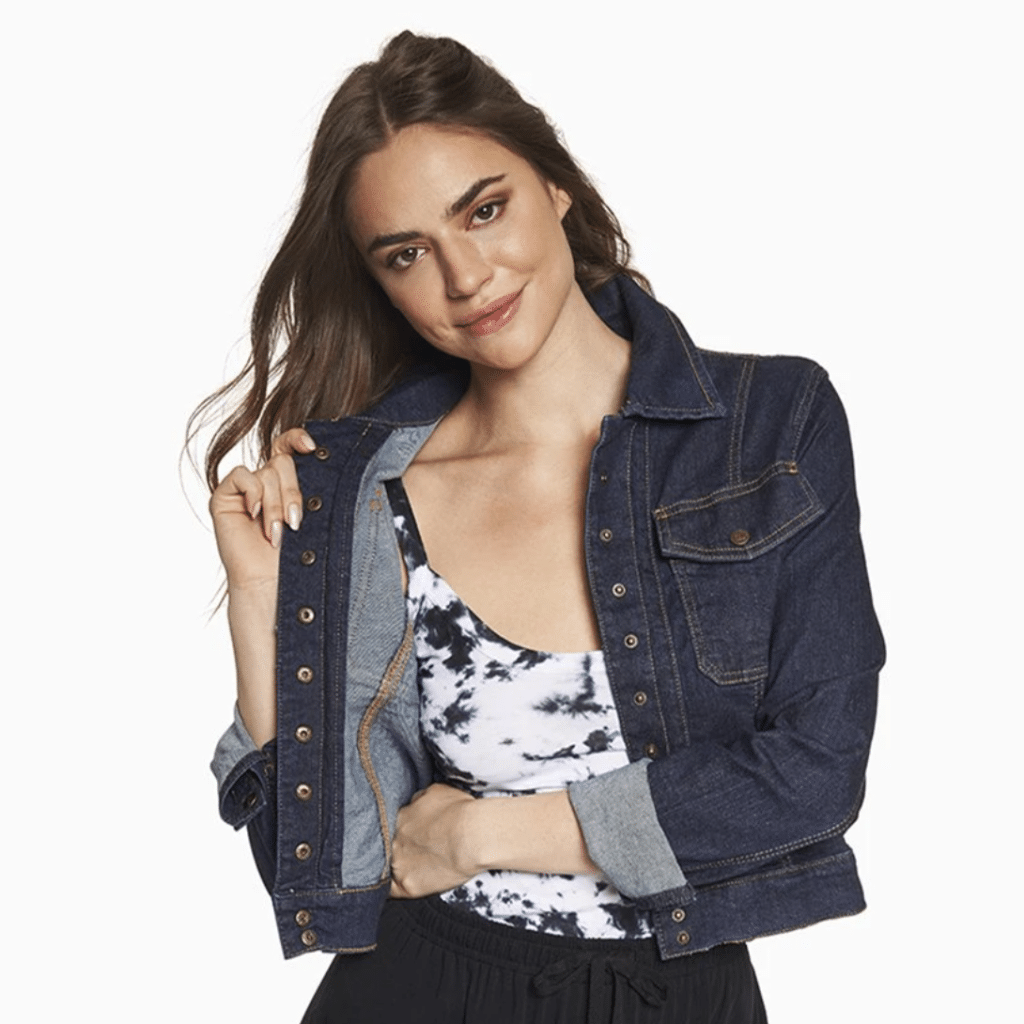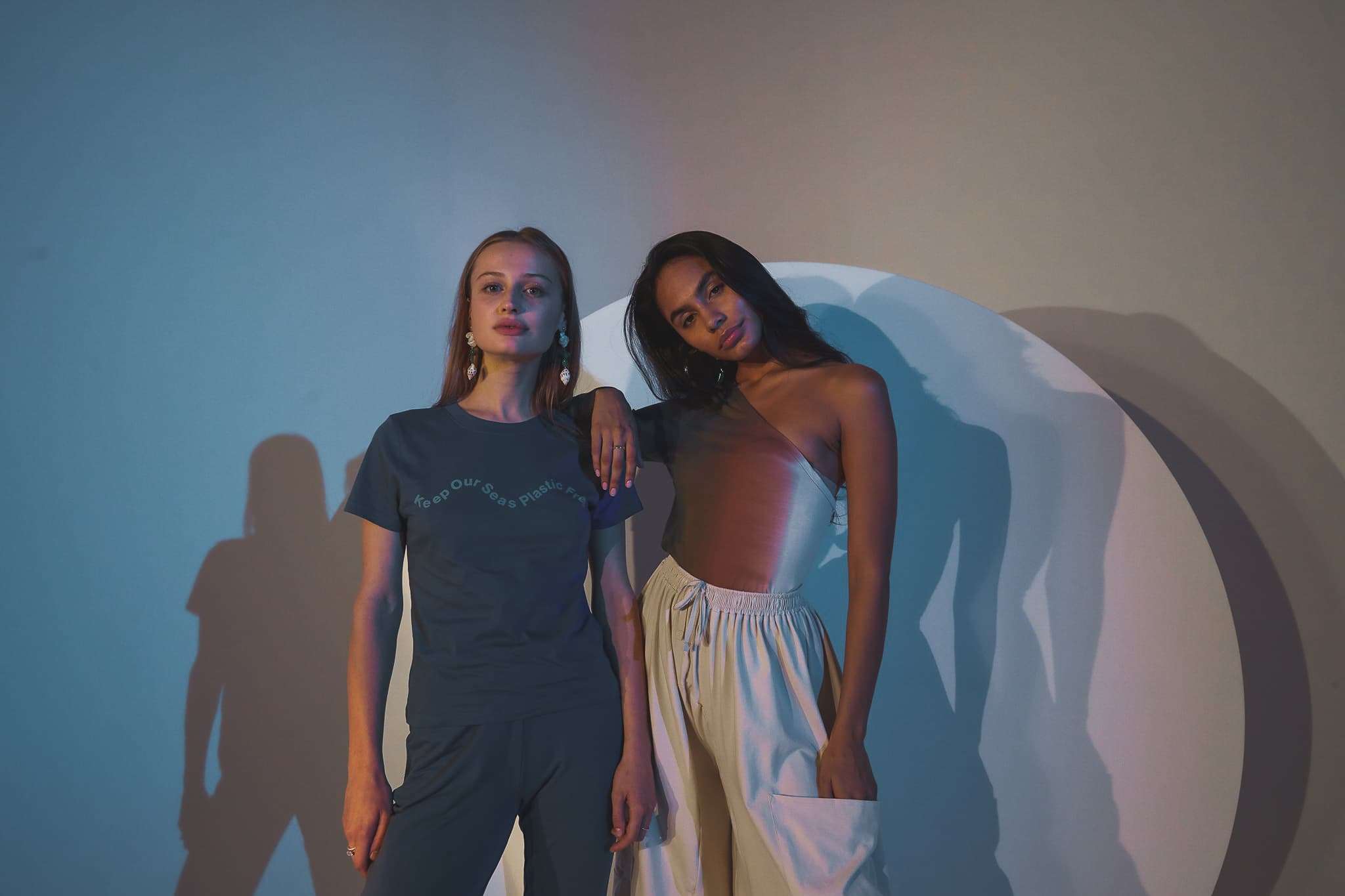
Sustainable fashion label YesAnd is making it easier than ever to shop your values without sacrificing on style or trends.
How much does fast fashion really matter in the sustainability conversation? A whole lot, according to eco-fashion label YesAnd. The company, founded in 2020 by serial entrepreneur Marci Zaroff, is aiming to bring eco-fashion mainstream with affordable prices and a host of mix-and-match pieces for the ultimate sustainable capsule collection.
Zaroff has been sustainably-minded since her teens—a driving force bringing fashion to the forefront of the sustainability conversation with brands including YesAnd, MetaWear, Seed to Style, and Farm to Home.
“Looking and feeling fabulous shouldn’t come at the expense of living in harmony with the environment,” Zaroff writes in her 2018 book EcoRenaissance: A Lifestyle Guide for Cocreating a Stylish, Sexy, and Sustainable World.
But disharmony is everywhere in the fashion industry; it’s one of the biggest drivers of climate change, toxic wastewater, and a leading hotspot for child labor.
Fast fashion, big problems
One of the biggest problems is the sheer magnitude of clothing produced every year. According to Earth.org, the industry produces twice the CO2 as the maritime and aviation industries combined.
The fast-fashion churn contributes to the 92 million tons of clothing waste produced annually. Eighty-five percent of that winds up in landfills, and about 60 percent of fabrics are made from synthetic materials that don’t break down easily, which contributes to toxic landfill leachate and the growing microplastic problem.
It’s not just that the fast fashion cycle keeps consumers chasing trend after trend; a big part of the problem is quality—or, rather, the lack of it. Fast fashion is cheap; it’s poorly made, and this means it’s going to fade, rip, tear, pill, and become otherwise unwearable quicker than quality pieces. The volume of fast fashion has been overwhelming secondhand stores for years. With the quality so poor, these stores wind up with literal tons of the stuff having nowhere to go and not enough of a labor force to deal with it.
“The most common misconception is that when you choose sustainability, it will come at a high cost.”
-Marci Zaroff
But quality doesn’t have to break the bank. YesAnd says its main goal is to make the sustainable option the most affordable, too.
“The most common misconception is that when you choose sustainability, it will come at a high cost. At YesAnd, we are able to offer sustainable apparel at an accessible price point through our vertically integrated supply chain. Consumers often believe they will need to sacrifice on quality, comfort, and style if they choose sustainable, eco-friendly options. Our collection at YesAnd checks all of the above and we are certified organic, low-impact dyed, and ethically made,” Zaroff tells Ethos.

“YesAnd products are made with 100% organic cotton, certified through the Global Organic Textile Standard (GOTS), which evaluates the entire supply chain. In addition to organic cotton, we love to use Tencel at YesAnd because it has properties we can’t quite achieve with cotton alone, like silkiness, sheen and drape. Some brands turn to polyester or rayon to achieve these properties. Unfortunately, polyester is derived from petrochemicals and sheds nonbiodegradable microfibers in the wash. Rayon, derived from trees, is processed with highly toxic chemicals and emits noxious gases when it’s manufactured,” says Zaroff.
“As with food, fiber is grown from soil as well and when you invest in organic farming practices, you are ensuring that the soil is being protected and no harmful chemicals are being used,” she says.
The brand uses inks that are free from harmful chemicals. This means no chlorine bleach, acetone, formaldehyde, or heavy metals are involved in the dying process.
“This benefits the consumer since there are no harmful chemicals embedded in our clothing,” Zaroff says. “What you put on your body is as important as what you put in your body as our skin is the largest organ we have and is the most important for absorption.”
It also prioritizes stringent labor standards that elevate workers. “All GOTS certified factory workers must receive a living wage and factories must meet stringent safety standards, which is something we value heavily as a company,” says Zaroff. She was a key driver in the development of the Global Organic Textile Standard.
“We are committed to fair wages, empowering female farmers, sustaining their local communities, and no child labor,” Zaroff says. “Over half of our workers are women, so our choices impact them most.”
Further, YesAnd offsets its carbon by planting mangrove trees for every order. The company says it selected mangroves because they are the best trees for mitigating climate change.
Blockchain supply chain
All of this dovetails into YesAnd’s commitment to transparency—a four-letter word in an industry that thrives on secrecy and greenwashing.
But YesAnd hopes to change that. Just last month, the company announced the launch of blockchain technology to help promote transparency across its supply chain.
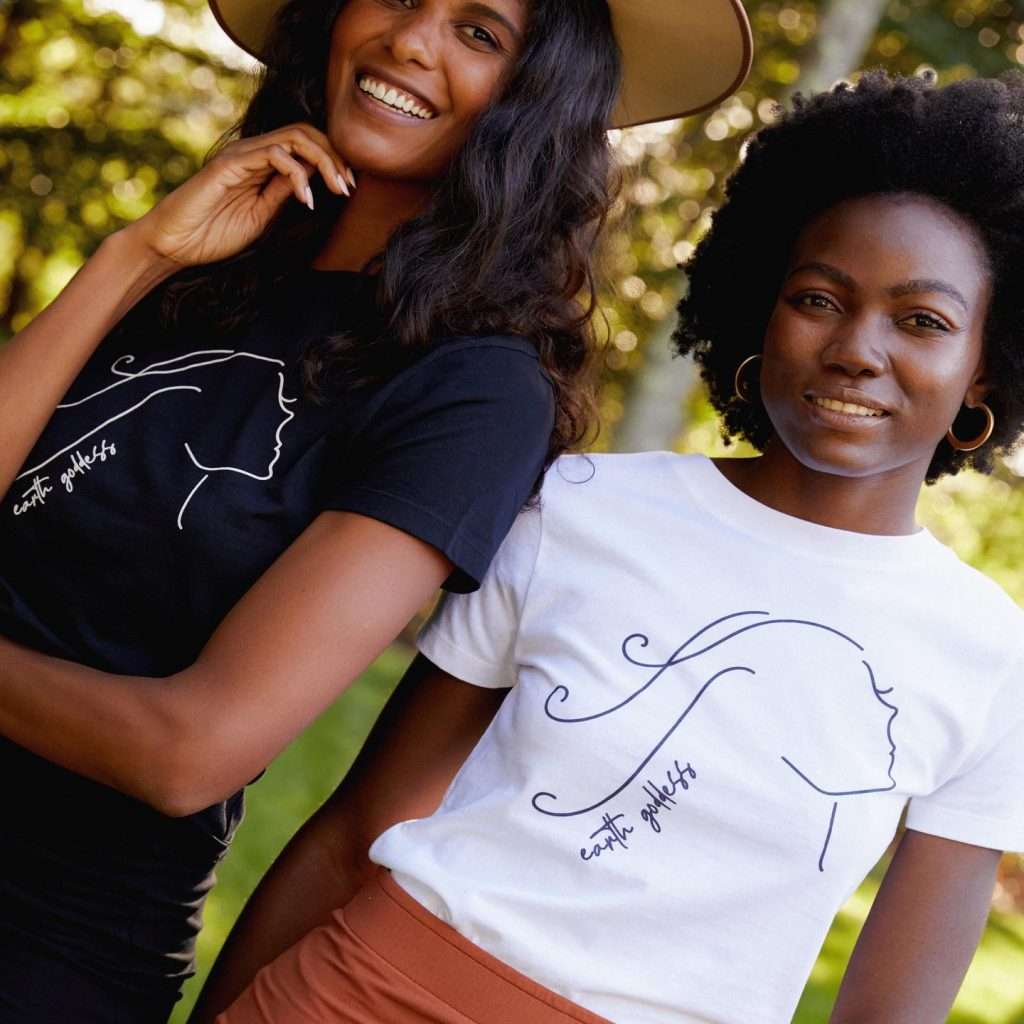
“It’s no secret that fashion’s supply chains are fraught with exploitation, corruption, and environmental destruction,” says Zaroff. “But, at YesAnd, we believe the industry can transform into one that empowers, regenerates, and restores both people and planet.”
According to Zaroff, blockchain helps digitize the steps in YesAnd’s manufacturing process, giving the company the ability to track and trace materials from farm to finished product.
“This data is collected in one place so we can benchmark, audit, and continue to improve,” says Zaroff. “Because all information is embedded in the blockchain, it adds an extra layer of authenticity by offering visibility at every stage of the supply chain, not to mention validating our certifications at each of those stages.”
For conscious consumers, this is the proof in the pleated pudding. “The blockchain gives customers the chance to understand how and where our products are made,” Zaroff says.
“Currently, we have our largest knits factory plugged in, but we are aiming to transition the rest of our factories as soon as possible. Step two will be to embed impact metrics—that is, tracking carbon impact, energy and water usage throughout each of the stages,” she says.
YesAnd’s blockchain is powered by Storybird. Consumers scan the QR code on the inside tags, and they can then follow the “journey to the origin” of their YesAnd pieces.
YesAnd is sustainable and affordable, so it’s easier to find great, quality pieces you’ll rewear, and build collections you can mix and match. It’s breaking new barriers in the textile arena, too. YesAnd just launched the first-ever GOTS certified organic velour. The company is excited about it, says Zaroff. “It’s trend-forward fashion that is timeless, and we are proving that fiber innovations exist and are possible to make sustainably.”
The collections are for anyone, says Zaroff. “Any woman, from a millennial just starting out in the workforce, to a stay-at-home mom, will love the versatility, comfort, and style that YesAnd clothing provides.”
Ethos readers save 33 percent on all orders using code YAETHOS33 at checkout.
7 picks for a sustainable capsule collection
Get all for $465 (with 33% off: $311.55!)
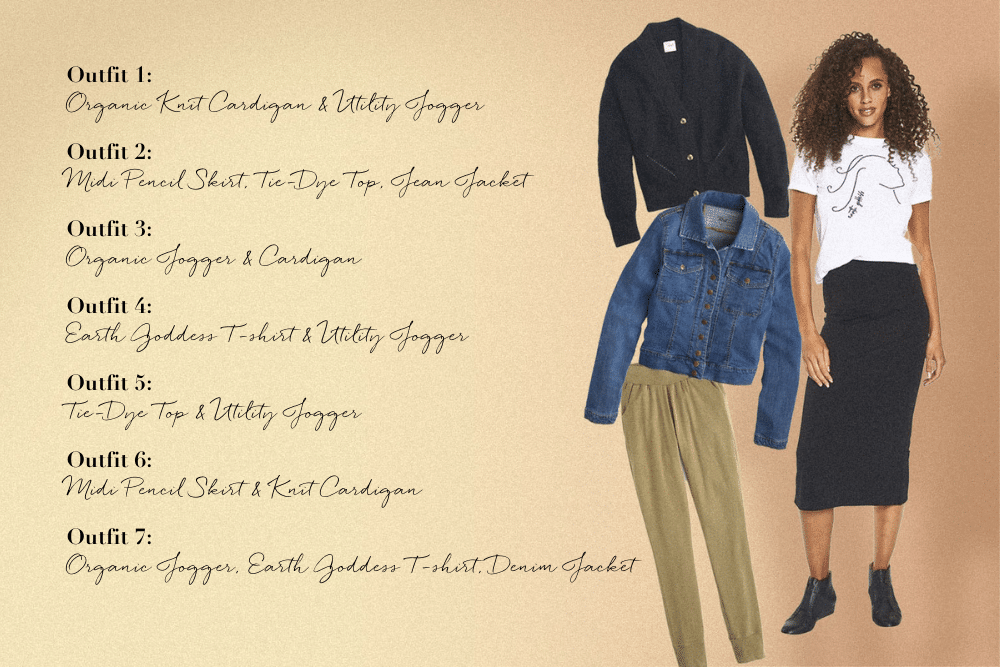
1. Organic Knit Cardigan $84
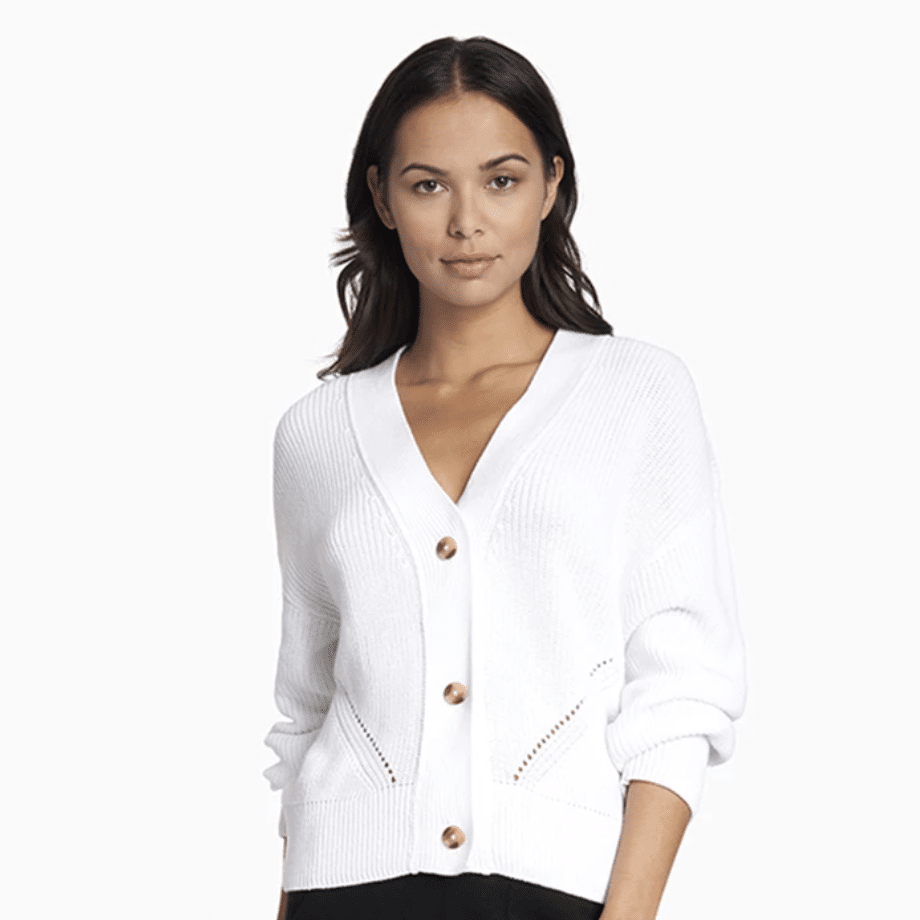
2. Organic Tie-Dye One Shoulder Long Sleeve T-Shirt $48
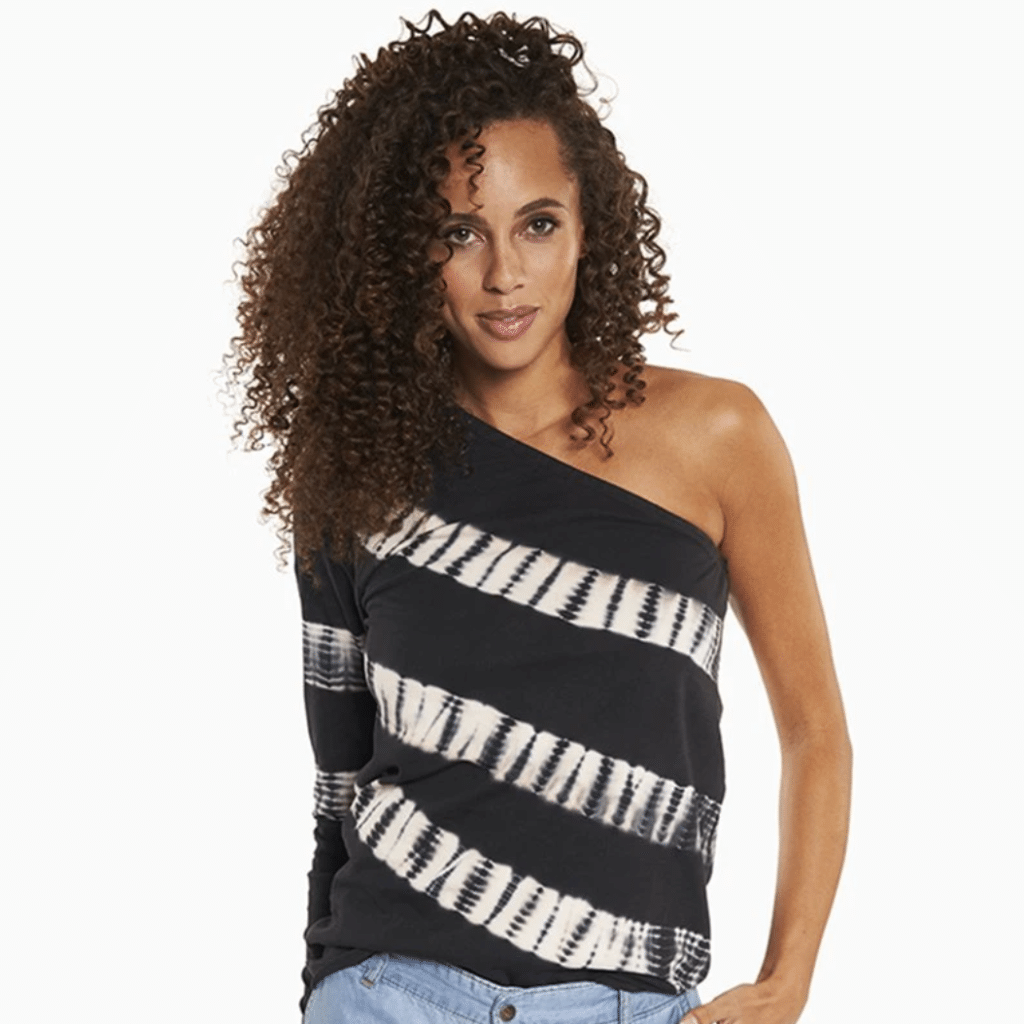
3. Organic “Earth Goddess” Fitted Short Sleeve T-Shirt $39
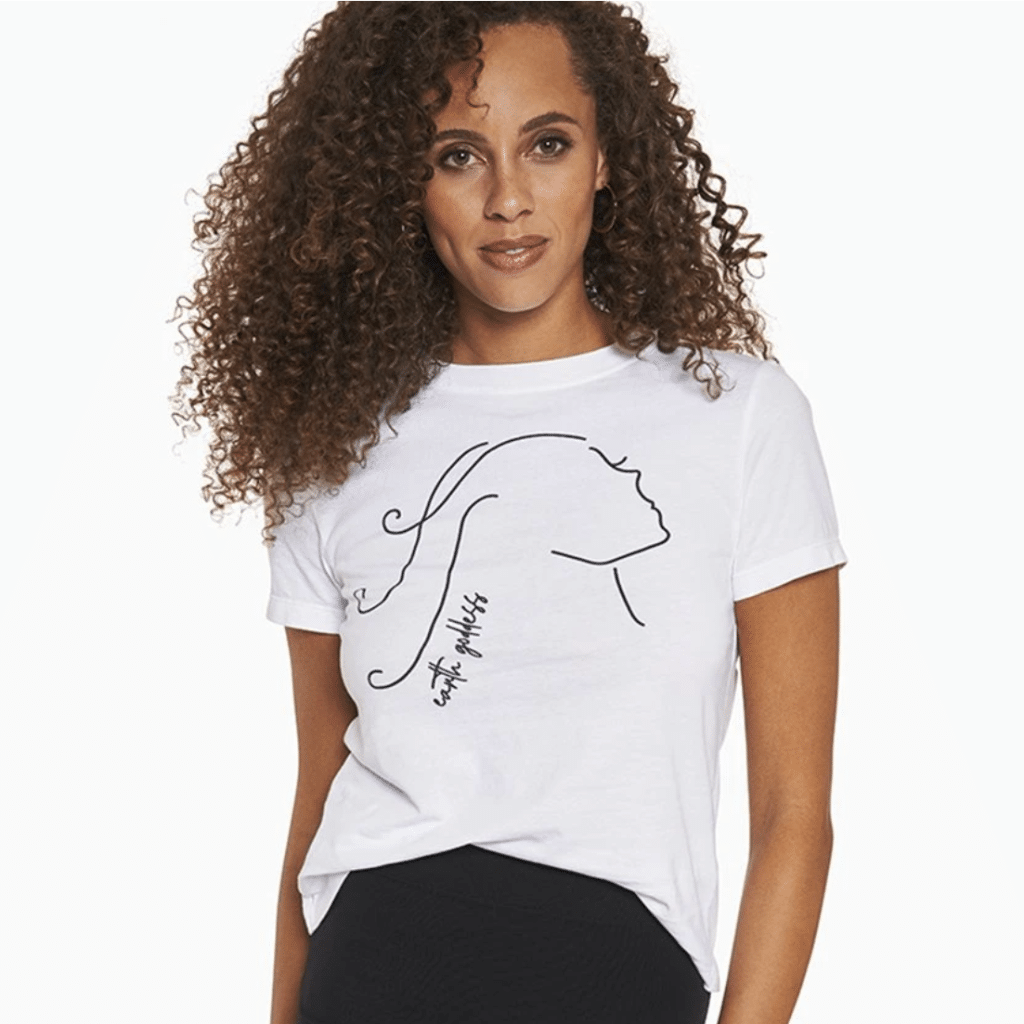
4. Organic Midi Pencil Skirt $44
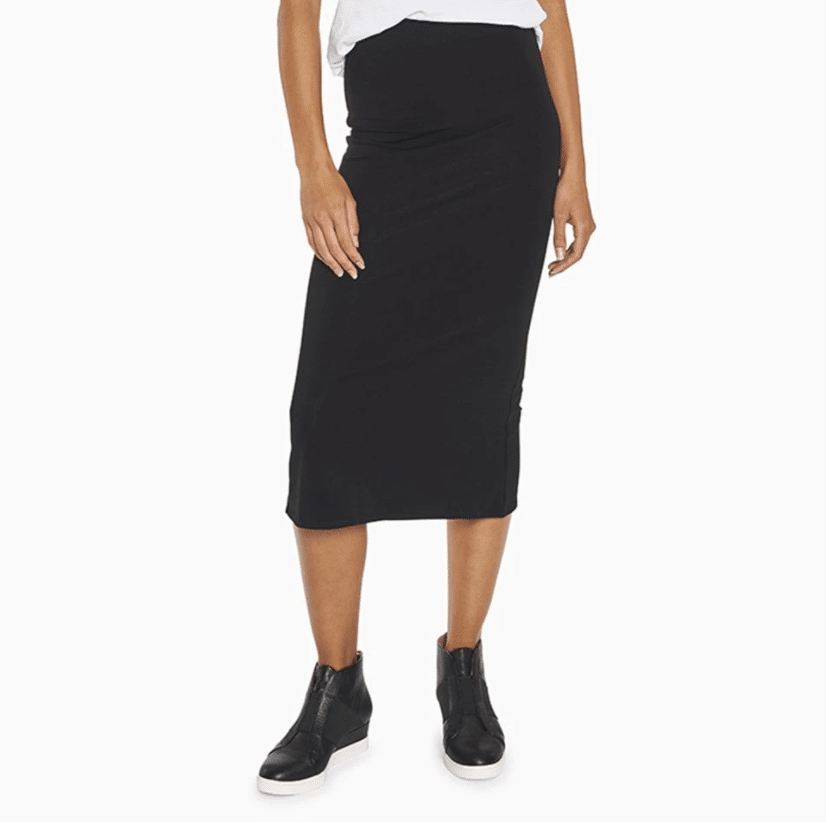
5. Organic Utility Jogger $78
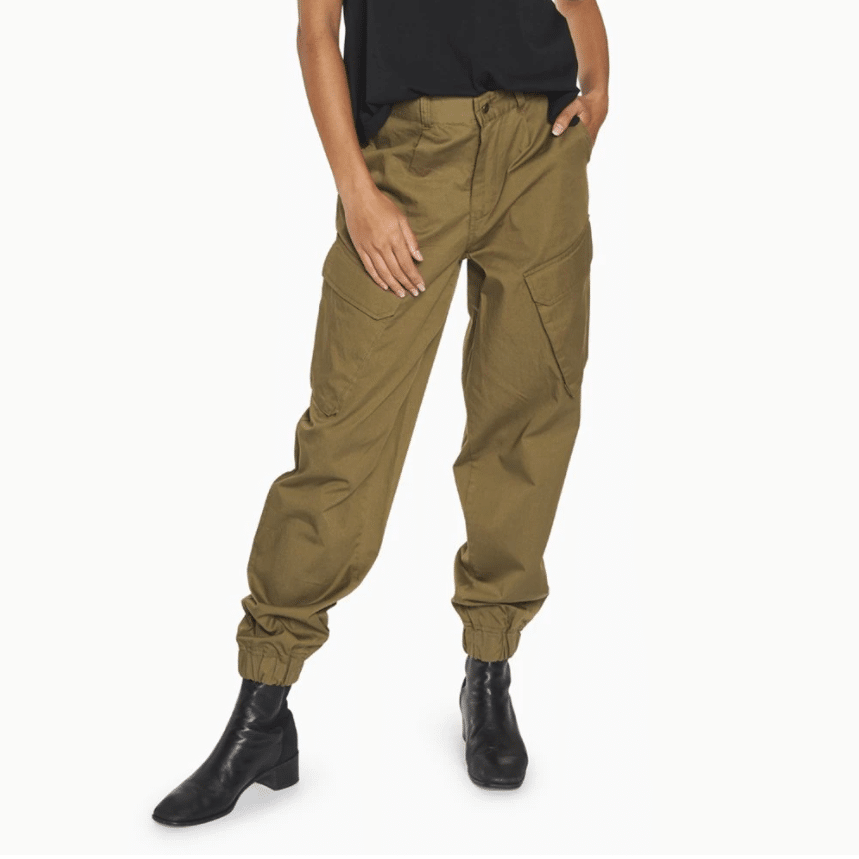
6. Organic Jogger $57
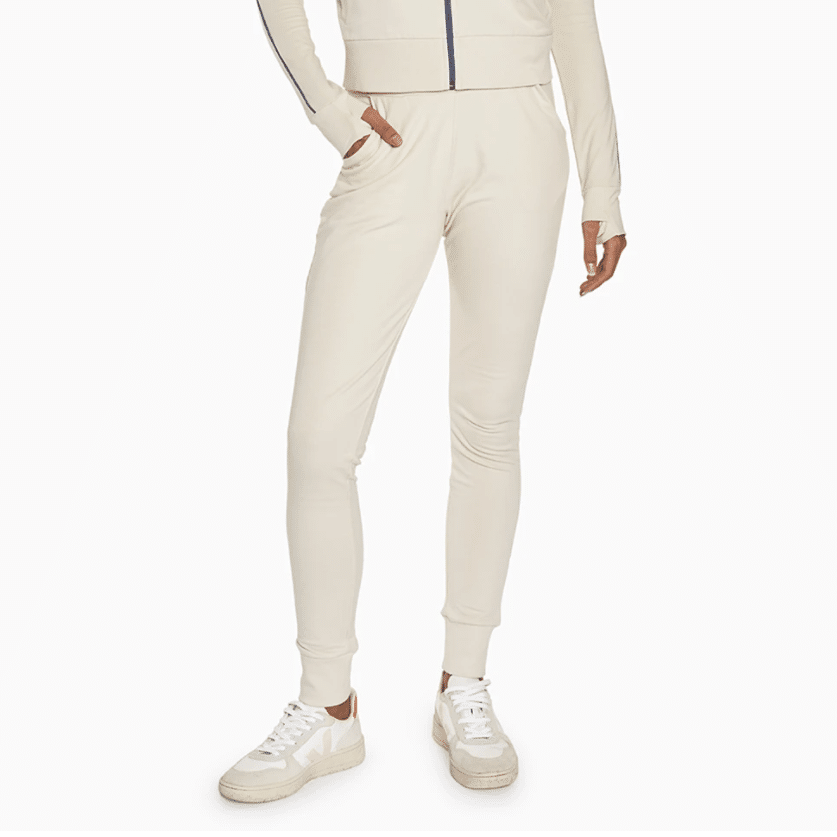
7. Organic Fitted Denim Snap Jacket $115
